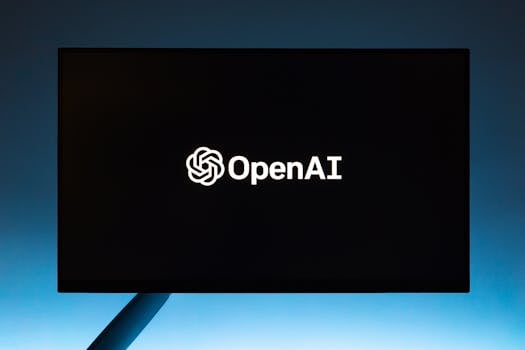+17162654855
+17162654855
NRP Publication News serves as an authoritative platform for delivering the latest industry updates, research insights, and significant developments across various sectors. Our news articles provide a comprehensive view of market trends, key findings, and groundbreaking initiatives, ensuring businesses and professionals stay ahead in a competitive landscape.
The News section on NRP Publication News highlights major industry events such as product launches, market expansions, mergers and acquisitions, financial reports, and strategic collaborations. This dedicated space allows businesses to gain valuable insights into evolving market dynamics, empowering them to make informed decisions.
At NRP Publication News, we cover a diverse range of industries, including Healthcare, Automotive, Utilities, Materials, Chemicals, Energy, Telecommunications, Technology, Financials, and Consumer Goods. Our mission is to ensure that professionals across these sectors have access to high-quality, data-driven news that shapes their industry’s future.
By featuring key industry updates and expert insights, NRP Publication News enhances brand visibility, credibility, and engagement for businesses worldwide. Whether it's the latest technological breakthrough or emerging market opportunities, our platform serves as a bridge between industry leaders, stakeholders, and decision-makers.
Stay informed with NRP Publication News – your trusted source for impactful industry news.
Information Technology

**
The recent Israeli attacks on Iranian nuclear facilities have ignited a fierce debate, with accusations swirling around the role of artificial intelligence (AI) in the decision-making process. Specifically, the use of Palantir Technologies' powerful data analytics platform has come under intense scrutiny, raising critical questions about the ethical implications of employing AI in international conflicts and the potential for biased algorithms to exacerbate existing tensions. The claim that Palantir’s AI “justified” the attack is a simplification, but the underlying concerns about AI's role in shaping geopolitical decisions are undeniably significant. This article will explore the complex intersection of Palantir, AI, the Israeli-Iranian conflict, and the broader implications for global security.
Palantir, a data analytics company founded by Peter Thiel, provides sophisticated software used by governments and intelligence agencies worldwide. Its platform, known for its ability to integrate and analyze vast amounts of data, allegedly played a role in gathering intelligence related to Iran's nuclear program. However, the extent of its influence remains contested. While some reports suggest Palantir's AI aided in identifying targets and assessing risks, others argue its role was far more limited, primarily providing a visual interface for already-existing intelligence. The lack of transparency surrounding Palantir's operations makes it difficult to ascertain the true extent of its contribution. Keywords like Palantir AI, data analytics in warfare, and intelligence gathering technology are central to understanding this opaque situation.
A key concern surrounding Palantir’s involvement is the potential for algorithmic bias. AI systems are trained on existing data, and if that data reflects pre-existing biases – whether conscious or unconscious – the AI’s conclusions will inherit those biases. In the context of international relations, this means an AI system trained on data reflecting a particular nation's perspective might produce results that reinforce that nation’s pre-existing assumptions and justifications for conflict. This raises the critical question: can AI truly provide objective analysis in a field as inherently subjective as geopolitics? Algorithmic bias, AI ethics in warfare, and responsible AI development are crucial concepts here.
The long-standing tensions between Israel and Iran are multifaceted and deeply rooted in historical, political, and ideological differences. Iran's nuclear program is a major point of contention, with Israel viewing it as a significant threat to its national security. The recent attacks, regardless of Palantir’s alleged involvement, highlight the volatile nature of the situation and the immense human cost of such conflicts. Understanding the Israeli-Iranian conflict, Iran nuclear program, and Middle East conflict is fundamental to grasping the broader implications of the use of AI in this sensitive context.
The use of AI in military applications is rapidly evolving, raising significant ethical and strategic concerns. While AI can potentially improve the accuracy of intelligence gathering and reduce civilian casualties, it also carries the risk of escalating conflicts through automated decision-making and a potential lowering of the threshold for engaging in military action. Autonomous weapons systems, AI in military strategy, and future of warfare are terms reflecting this broader discussion.
The lack of transparency surrounding Palantir's role in the Israeli-Iranian conflict highlights a crucial need for greater accountability in the use of AI in geopolitical affairs. Governments and technology companies must be more transparent about the development and deployment of AI systems used in military and intelligence contexts. Independent audits and ethical guidelines are vital to ensure responsible AI development and deployment, preventing the potential misuse of AI to justify or exacerbate conflicts. Terms such as AI transparency, AI accountability, and responsible technology reflect the necessity for ethical regulations in this rapidly developing field.
The use of Palantir's AI in the context of the Israeli-Iranian conflict raises profound ethical questions about the role of technology in international relations. While AI can offer significant advantages in intelligence gathering and analysis, its potential for bias and its implications for the future of warfare require careful consideration. A commitment to transparency, accountability, and the development of robust ethical guidelines is crucial to prevent the misuse of AI and ensure that these powerful technologies are used to promote peace and security, not conflict and destruction. The debate surrounding Palantir’s involvement will undoubtedly continue, underscoring the urgent need for a global conversation about the ethical implications of AI in geopolitics.